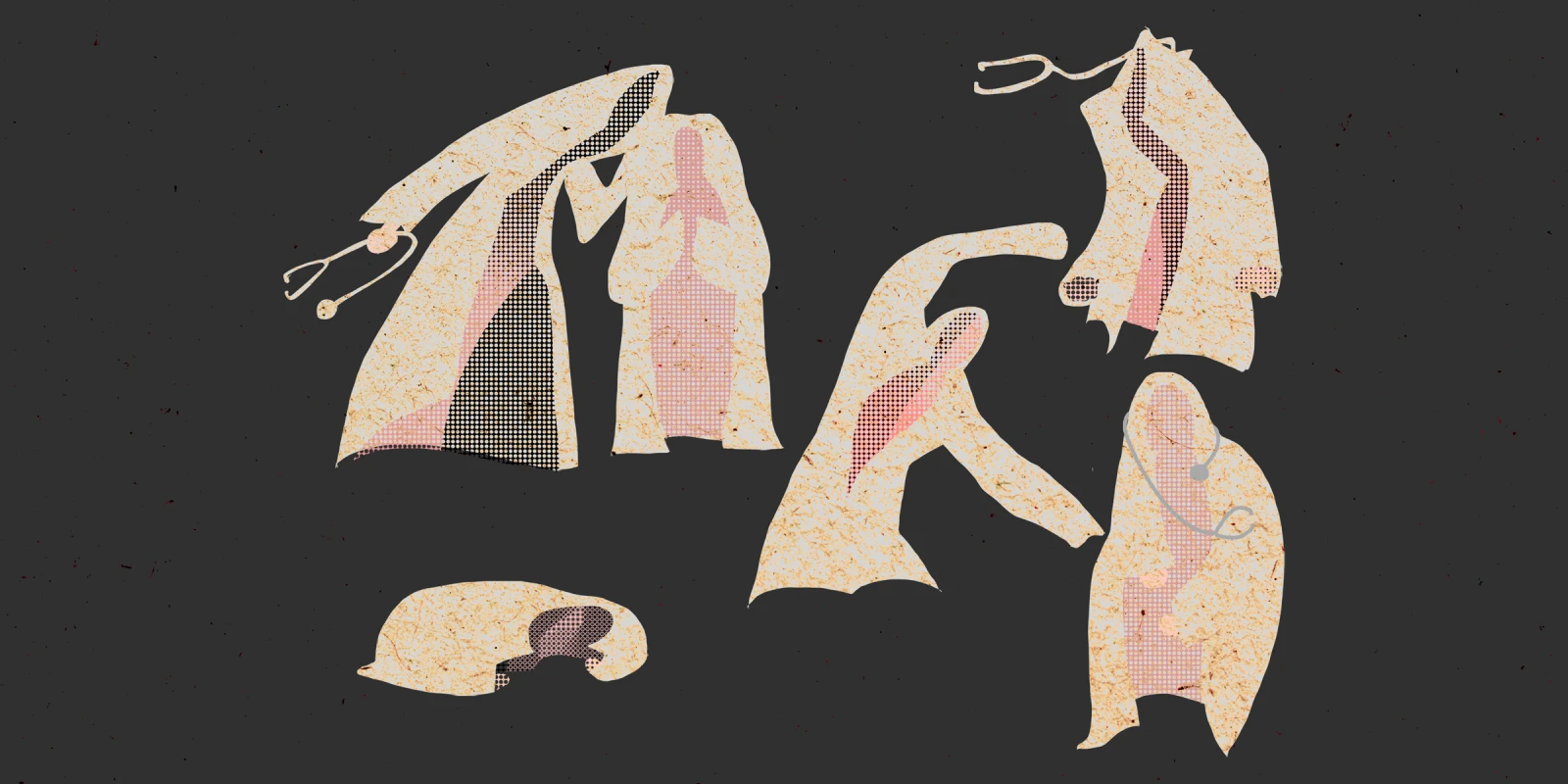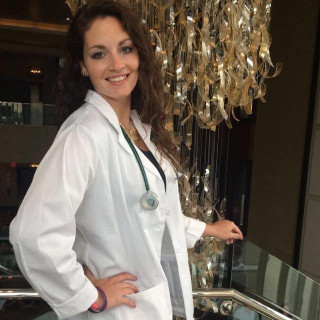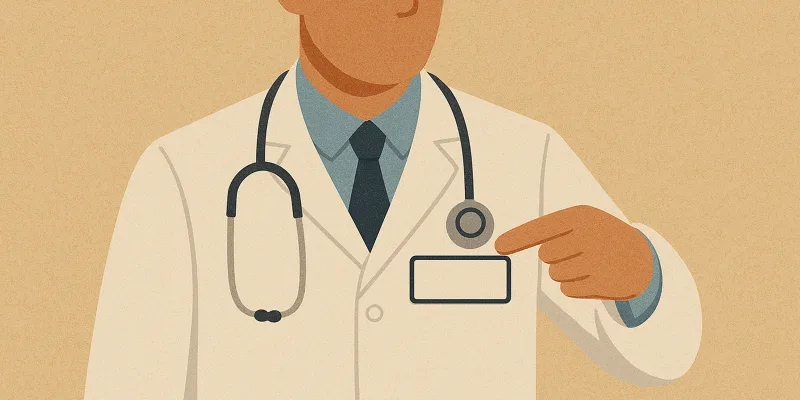“I may not be the best surgeon, but, to my knowledge, I have never made a resident or medical student cry … and I don’t think many of my colleagues can say that,” one of my surgery attendings mused while she chatted with my coresident and I about academic surgery.
“Wow, so unfortunate how true that is,” my senior resident agreed as we left our attendings’ office, “I’ve probably lost count by now.”
“I mean, it’s still early in residency,” I said, “but luckily, it’s only happened to me once so far.”
I was referring to an interaction I’d had with an ER attending in July of my intern year. I was on an acute care surgery service with a steep learning curve. I’d been so busy dealing with a stroke activation on one of our floor patients that I hadn’t had time to tell a patient in the ER that we were taking him straight to surgery.
A woman in scrubs strode over to where I was standing when I returned to the ER. “Are you surgery?” she demanded.
“Yes?” I confessed.
“I’ve got some feedback for you.” She started, and settled in to deliver the speech she’d seemed to have spent the afternoon composing. “When you surgeons decide you’re going to do surgery, it occasionally helps to INFORM the patient he’s having surgery, don’t you think? If your grandfather was having surgery, wouldn’t it be nice if someone from the surgery team cared to take 10 seconds to tell him that?...”
I braced myself against her words and let them wash over me. I didn’t disagree with her. I felt horrible for the patient; it wasn’t his fault I had to be in three places at once.
I was sure she thought all I cared about was rushing back up to the OR so I could avoid taking care of patients, but that wasn’t true. I wanted to tell her that I’d listened to people imply that surgeons didn’t care about our patients throughout my rotations in med school, and that this perception bothered me so much, I almost talked myself out of pursuing surgery at all. However, I ultimately knew that how much someone cares about her patients is hardly dictated by specialty. I knew trauma surgeons who went out into the community on their days off to talk to young people about preventing gun violence, transplant surgeons who slept on chairs in the ICU outside their patient’s bedrooms after operating all night — the list went on.
I knew all of this, and yet it didn’t make it any easier to hear all these accusations aimed not at “surgery” in the abstract, but at me specifically as a doctor that day in the ER. The second that attending was gone, I ducked back into the hallway outside the ER to let the tears that had been anxiously waiting finally roll down my face.
Most physicians have been here.
In talking with peers in residency, it seems as if the “tears inducing” moments are similar: we were put in a challenging scenario, trying to do our absolute best, but it ultimately wasn’t enough. This statement can probably be used to describe most of residency, and one might think that situations like this are inevitable, but I realized later that they don’t have to be.
Many months later, I had to present a trauma patient I’d cared for at our Morbidity and Mortality Conference (M&M). There had been an unexpected mortality of a young and healthy patient. This was, by all accounts, a significantly worse outcome than a miscommunication about plans for an ER patient.
I was sure that M&M was going to be 10 times as awful as the altercation with the ER attending had been, but while there were expected criticisms that faculty did make of our surgical ICU team, this time there was no personal attack.
The faculty started out by sharing the sad reality that every surgeon experiences cases like this. They shared important points for learning and acknowledged that our SICU team surely would remember this case for the rest of our career — an implication that we shouldn’t be made to feel worse about it.
No one suggested that I was a terrible doctor who didn’t care about patients, and no one yelled at me before I could explain myself. Instead, faculty, senior residents, and program leadership reached out, thanked me for the presentation, and reminded me that this hadn’t been my fault. One senior resident gave me a hug and said, “Please don’t ever forget that the accident killed this patient. You all tried your best to stop it and that's unfortunately what our job is like sometimes.”
There are a lot of things that make residency hard that are unavoidable. It’s hard to wake up a family in the middle of the night to tell them that something terrible has happened to their loved one. In a different but not insignificant way, it's also hard to call back 67 pages overnight, and somehow write 15 admission notes before finally going home to sleep.
But something that is under our control is how we treat our colleagues during all of this: our peers, our nursing and OR staff, and importantly, the students and more junior residents who look up to us. I’ve been taught to think that someone who is calling us for a consult is someone who is asking for help, not ruining my night with something that could’ve waited until morning. And similarly, a consulting service I’ve had to page a second time likely isn’t purposefully trying to ignore me — they’re covering two hospitals and are trying their best.
It’s easy to yell at interns, to accuse everyone (except ourselves) of being an idiot. This of course, can happen easily during high stress interactions, but when this happens during low stakes times (like routine admissions, daily rounds, etc), it creates stress that didn’t have to be part of an experience already fraught with so much unavoidable pressure. It’s much harder to find grace for colleagues, and to recognize the complexities of another persons’ experience, but during the M&M week, I saw that this can be found even in the worst of circumstances. I urge all of us to find this grace for others during ordinary times in residency as well … and I hope to never make a resident or medical student cry in my career, either.
Have you made an intern or medical student cry? Did someone make you cry as an intern or medical student? Share your memories in the comments.
Colleen is currently a general surgery resident in Salt Lake City, UT. She hopes to pursue a career in academic surgery where she can continue teaching, writing, and research in addition to clinical practice. She has an MD/MPH from Tulane University in New Orleans, LA, and hopes to continue to use public health principles to improve surgical outcomes for patients. In her very extensive free time as a surgery resident, Colleen enjoys art, skiing and snowboarding, hiking, writing, dancing, and practicing yoga. Colleen is a 2021–2022 Doximity Op-Med Fellow.
Illustration by Jennifer Bogartz







